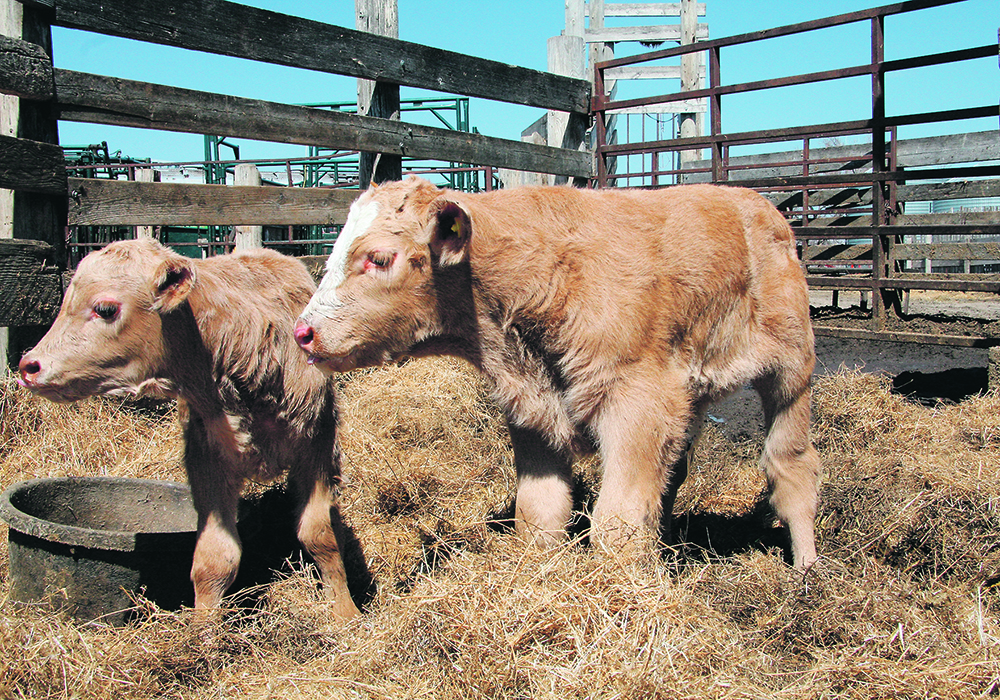Health Canada’s Veterinary Drugs Directorate says there are no backlogs in drug submissions, despite industry complaints
When Solvet tried to get Canadian approval for its castration bands infused with lidocaine for pain management in cattle, the company was met with a delay.
Merle Olson, founder and director of development and research at Solvet, an Alberta veterinary pharmaceutical company, said its product will come out in the United States at least a year before it does in Canada.
Related stories on this issue:
- Death by consultation
- Canadian ag tech firms avoid domestic market
- August 2021 called turning point for crop protection regulation
Read Also

Quebec pork company calls for transparency around gene-edited pigs
Quebec-based pork company duBreton is calling for transparency around meats from gene-edited pigs on concerns that a lack of mandatory labelling will confuse consumers, and dilute certification claims. The organic sector is also calling for labelling rules.
He blamed the delay on Canadian regulatory requirements for drug-device combination products.
Olson said his company would submit the product to Health Canada by January 2024, but it would take a while after that to get it approved.
“All of this work was developed in Canada. It’s too bad it will be at least a year before it’s available in Canada,” Olson said.
In an emailed response, Health Canada said Solvet’s castration band is classified as a drug-device combination product.
“While there is no pre-market review for medical devices for use in animals, drug-device combination products would still be subject to the requirements for the approval of a drug as per the (Food and Drug Regulations), including a demonstration of product quality, safety and efficacy to support the claims being made. That is to say, even though a medical device does not require pre-market approval, the drug component still requires a company to submit to Health Canada,” the department’s response said.
The Health Canada response also said a submission is required, even though other products containing lidocaine may have already been approved, because of a potential difference in product use and manufacturing.
Health Canada has a branch called the Veterinary Drugs Directorate. According to Health Canada, the VDD “evaluates and monitors, sets standards and promotes the prudent use of veterinary drugs administered to food-producing and companion animals.”
It said VDD processes all new drug submissions within 300 days, and that currently there is no backlog.
“VDD is committed to working with industry to bring products to the market and to support innovation,” Health Canada said. “This can include discussions and support throughout development (Experimental Study Certificates), answering preliminary questions via call/email, and pre-submission meetings when a drug is close to being ready to submit for approval.”
Despite Health Canada ensuring there is no backlog of submissions, Solvet’s castration band likely won’t be approved for at least another year.
It is a frustration felt by many people in the industry with other regulatory bodies, such as the Canadian Food Inspection Agency and Pest Management Regulatory Agency. Companies sometimes seek approval in other markets such as the U.S. or the European Union before trying to get approval in Canada, despite Canada being the home country for some, such as Solvet.
This results in Canadian producers having less access to some of the emerging technology that farmers and ranchers in other countries have.
Solvet will continue to support Western Canada, despite the roadblocks, and use international markets to its advantage.
“We’re one of three Canadian companies that actually manufacture within Canada. So we’re pretty proud of that,” said Solvet chief executive officer Lionel Gibbs. “And we’re also proud that instead of all these companies coming to Canada and importing products, we’re now exporting. We’re reversing the game and we’re now exporting it to all these countries from a Canadian perspective.”

















